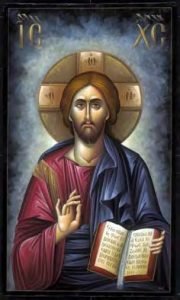 The next important event in the life of Jesus following His birth, was His circumcision and “naming.” This event, in accord with tradition, took place eight days after His birth.
The next important event in the life of Jesus following His birth, was His circumcision and “naming.” This event, in accord with tradition, took place eight days after His birth.
This practice became a law among the Israelites at the time of Abraham. It is a symbol of their covenant with God. For Jewish people this practice is a sign of being a member of the people of God. It means submitting oneself to the law and its duties. Through this act every Jewish male becomes a participant in the blessing and promises God made to His people. It is required for participation in the yearly paschal sacrifice. A man is excommunicated from the Jewish people for non-observance of this law. Since God, in the Person of Jesus, came into the world as a human being in a Jewish community, He embraced this observance.
This feast originated and developed first in the Western Church and later passed over to the Eastern Church. It became a part of the Church calendar to counteract the pagan practices that typically took place on the first day of a New Year.
In the East, the feast seems to have become universal during the eighth and ninth centuries, for at that time, the Byzantine calendars assigned this feast and that of St. Basil the Great to the first of January.
This feast celebrates two events: Jesus’ initiation into the Jewish people and the conferral of His name, which means “savior.” Hence, this feast is also called the “Naming of Jesus Christ.”
This feast is not one of the twelve major feasts of our Church, however. As such it has neither a pre– nor post-feast. It brings to a close, strictly speaking, the post-feast of Christ’s Nativity.
The feast speaks to us of sacrifice and self-denial. There is no genuine service of God without the observance of God’s commandments and the fulfillment of Christian duties. God, in the Person of Jesus, modeled that it is important to make a sincere commitment to living the way God revealed through the Person of Jesus.
The naming of Jesus reminds us of the holiness and power of that name and its great significance. God Himself, through the mediation of an angel speaking to Joseph in a dream, gave this name to Christ.
In the Eastern Church the JESUS PRAYER is a prayer of great power. We are encouraged to call upon God in the name of Jesus.
